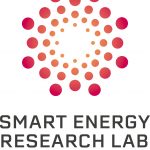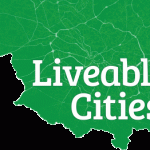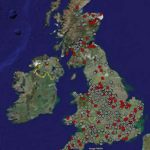The following is a list, in descending date order, of projects and research undertaken since 1992 by the Sustainable Energy Research Group with the support of grants and other funding.
Assessment of potential for rooftop solar PV in Hampshire and Sussex 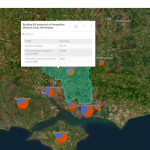
Rooftop solar means greater generation of renewable energy, closer to where it is used. However, understanding the possible scale of rooftop solar requires mapping the potential, building by building.
Co-developed Environmental Solutions to Mitigate the Impact of Temperature Extremes on the Health of Vulnerable Populations 
Developing new knowledge and tools to address understanding of health risks (including long-term outcomes) for the most vulnerable, and how this relates to the interplay between variability of temperature hazards and outdoor/indoor exposure as driven by socio-economic gradients and mobility
Guidelight – UK Power Networks, electricity distribution 
Low-income and vulnerable consumers receive grant funded LCTs through local authority retrofit schemes, but without supporting households to switch tariffs or using digital optimisation tools, retrofit schemes risk creating a socio-technical performance gap that this project will evidence and address through a range of capability-based interventions that are tailored to those in vulnerable circumstances.
Overheating Risk Assessment for UK schools 
This project is a response to the UK’s overheating risk introduced by climate change. By 2070, climate projections for the UK estimate an increase in seasonal average temperatures of up to 5.1°C in summer as well as more intense and frequent extreme events such as heat waves.
Pioneering net zero delivery for the City of Southampton 
This project, currently in its second-phase will build on Southampton’s characteristics, opportunities and challenges through developing a combined techno-economic methodology coupled with stakeholder engagements to support a coherent feasibility studies to address its pathway to net zero.
Mini grid resilience through integration of e-cooking loads 
This project aims to explore the potential of integrating electric cooking in mini grids in order to replace the use of LPG and firewood. The project will use the Oloika Solar mini grid project as a case study, utilising the excess power generated by the PV system.
Sustainability Implementation Group 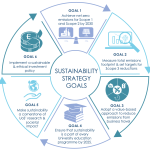
ECCD lead on the University Strategy-Sustainability, through the University Sustainability Implementation Group (SIG), setting the vision for a more sustainable University.
FORTIS UNUM (Stronger As One): Clustering Mini-Grid Networks to Widen Energy Access and Enhance Utility Network Resilience 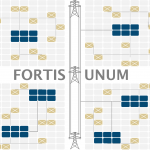
FORTIS UNUM research will address in-situ mini grid system and networks connectivity and simulations in (i) isolated mini grid networks, (ii) mini grid networks connected to the national grid and (iii) multiple mini grid networks connected together and working jointly (clustered) and connected to the national grid.
LATENT: ResidentiaL HeAT As An Energy SysTem Service 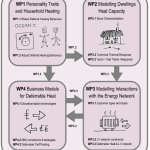
ECCD are working on the LATENT project, bringing together academic and industrial partners to offering thermal preference and acceptance of automated 3rd party control of residential heating systems for grid support.
Demand Side Renewables for Agricultural Base Load Energy (DeSiRABLE) 
Within this project we aim to develop renewable energy technology platforms to support agricultural loads and provide additional energy services to enhance local enterprises in Sub-Saharan Africa. We will develop a toolbox that will allow us to quickly and accurately determine cost effective solutions including, system size and additional energy services for rural communities.
Renewable Energy in Saudi Arabia 
Energy and Climate Change Division (ECCD) undertake research to support the Kingdom of Saudi Arabia’s (KSA’s) Vision 2030. The research is in collaboration with the Department of Electrical and Computer Engineering, King Abdulaziz University (KAU), supported by King Salam Bin Abdulaziz Chair in Energy Researcg and KSA Ministry of Education.
Hampshire Energy Mapping project 
Investigator: Dr Ben Anderson Masters student: Meghan Kingsley-Walsh Hampshire County Council declared a Climate Emergency in June 2019 and have since set two targets for the County as a whole: To be carbon neutral by 2050 To be resilient to the impacts of a 2oC temperature rise It is becoming widely recognised that decarbonising national and local energy systems will ...
Green City Performance Tracker 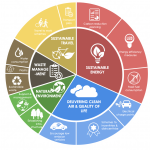
The Green City Performance Tracker has been developed to provide a robust assessment of Southampton City Council’s Green City Charter (GCC) to help the City in its transition towards zero carbon making it a cleaner, greener and healthier city.
Sources, behaviour and mitigation strategies influencing indoor air quality 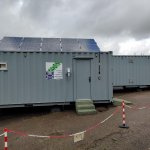
The average person in the UK spends more than 90% of their time indoors, and indoor air quality (IAQ) related emissions can contribute significantly to total air pollution exposure. Despite this, relatively few studies focus on IAQ compared to outdoor air quality. Experts from academia and industry will be utilising the domestic energy systems and ...
HEART (Holistic Energy and Architectural Retrofit Toolkit) 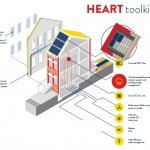
The HEART project aims to address the increasing need for deep retrofit interventions and to develop systemic strategies leading to high performance and cost effective solutions.
APERIO: Low cost facade management in naturally ventilated buildings 
This study proposes to develop and test a low cost, non-invasive technique to assess the impact of poor facade control on energy performance and enable facilities managers to address this issue.
Decarbonisation of the Winchester District 
Winchester City Council (WCC) has an ambitious aspiration for the Winchester District (coves approximately 250 square miles) to become carbon neutral by 2030 with this research project investigating options including a low carbon energy hub, building retrofit and mapping of EV charging and network resilience.
University of Southampton Sustainability Strategy 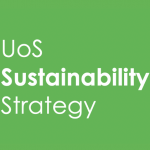
The University of Southampton developed a new Sustainability Strategy, launched on October 20th 2020, to sit alongside the University Travel Plan, Estates Strategy and Biodiversity Policy. The ECCD team has contributed to the consulting phases and is also leading the University Sustainability Implementation Group which arose as a result of the Strategy.
REPLENISH – REimagining PLaces and ENgineering Infrastructure Systems for Health 
REPLENISH contends that if our infrastructure systems and their associated cityscapes were designed with positive health and wellbeing outcomes as the primary design criterion, huge social and economic benefits would result. REPLENISH therefore proposes, by adopting systems thinking and systems engineering (or ‘doing’), to rethink and redesign our engineered infrastructure systems and cityscapes.
Envisioning Buildings-as-Energy-Service 
The project “Developing a Tool Kit for Knowledge Integration: Envisioning Buildings-as-Energy-Service” is aimed at creating an inter-disciplinary research environment to stimulate the innovation processes related to the concept of “Buildings-as-Energy-Service”.
This project aims to implement a demonstration programme encompassing an operational research and experimental analysis of how solar photovoltaics can be utilised and maintained as shading components in carports.
Seamless Engaging Home Services: Making Efficiency Desirable (SENSE) 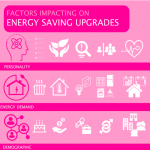
SENSE is a project looking to develop a new approach to providing energy services (insulation, energy contracts etc) to their residential customers. The aim is to be able to offer a tailored offer to a household – ideally one with whom they already have a gas and electricity contract. Customer engagement is clearly key to ...
SAVE: Solent Achieving Value from Efficiency 
Investigators: Professor AbuBakr Bahaj, Dr Ben Anderson and Professor Patrick James. Researchers: Dr Tom Rushby, Dr Magesh Nagarajan, Dr Mikey Harper Contact: A.S.Bahaj@soton.ac.uk The Solent Achieving Value from Efficiency (SAVE) project was awarded £10 million under the Low Carbon Network (LCN) Fund and was carried out by a multidisciplinary consortium of academics, industry and consultants. The project, led ...
This research project, which considered Sub-Saharan Africa proposes a DCMG platform to serve rural and remote areas beyond the utility grid. Levelized cost of electricity (LCOE) from such DC mini-grids have been studied and compared with equivalent AC mini-grids and diesel grids using HOMER micro-grid simulation.
Capacity Building in Energy Access and Energy Efficiency 
Newton Fund Institutional Links Grant between ECCD at the University of Southampton, and the Centre for Research in Energy Systems and Technologies (CREST) of the University of San Carlos aims to build capacity in energy efficiency and energy access.
THERMOSS: Building and district thermal retrofit and management solutions 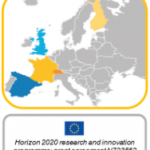
The THERMOSS project is a response to the 20% primary energy consumption reduction targets set by the 2012 European Energy Efficiency Directive (EED). This calls for effective and wide-scale building heating and cooling systems upgrade strategies. Such strategies will only be successful if they are based upon the right combination of technology innovation and ...
CareTeam – Adult Support Digital Platform 
CareTeam is an adult support digital platform that comprises a mobile app and household and personal sensing technologies. This platform aims to support independent living and help carers support their loved ones more efficiently and effectively. The project aims to help adults who currently receive home care to remain independent, comfortable and active, living in ...
Innovations in Solar Home Systems 
This project investigated a new upgradeable SHS for rural electrification with the key objectives of designing and developing an affordable and modular pay-as-you-go (PAYG) solar home system (SHS) product line for off-grid households in Africa.
Investigators: Dr Ben Anderson, Prof Abubakr Bahaj Researchers: Dr Tom Rushby SERG is part of a team led by UCL to deliver the new GB Smart Energy Research Lab (SERL) with funding from the UK Engineering and Physical Sciences Research Council. The Smart Energy Research Lab will provide a secure, consistent and trusted channel for researchers to access high-resolution ...
SPATIALEC: Marie Skłodowska-Curie EU Global Fellowship 
Dr Ben Anderson of the Sustainable Energy Research Group (SERG) at the University of Southampton has been awarded a prestigious three year EU Global Fellowship under the Marie Skłodowska-Curie programme. The two year outgoing phase of the fellowship will be hosted by the University of Otago’s flagship Centre for Sustainability where Dr Anderson will be embedded in the ongoing ...
UK – China Low Carbon Cities Project 
City-wide analysis to propel cities towards resource efficiency and better wellbeing Many cities in the world are putting in place their own robust carbon reduction strategies in response to, or in advance of, leadership from central government. As the powerhouses of economic growth, cities use vast amounts of energy and consume resources from hinterlands that stretch ...
IDCOP: Innovation in design construction and operation of buildings for people 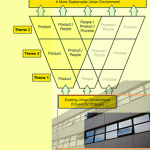
“Innovation in Design, Construction & Operation of Buildings for People” (IDCOP) is a multi institutional research programme funded under the Engineering and Physical Sciences Research Council (EPSRC) Sustainable Urban Environment (SUE) programme. The aim of the IDCOP consortium is to find new ways to improve the performance of building envelopes over the whole building life ...
IMPETUS: Domestic Water Demand and Drought 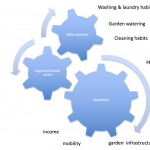
Development of a novel, practices-based approach to hot water demand estimation ‘under normal conditions’ using microsimulation to forecast seasonal demand at the household level under various water/energy conservation scenarios.
How do we address energy consumption to meet low carbon targets? How do we address infrastructure ‘lock in’ to improve the carbon performance of the urban environment? How do we engender and embed low carbon pathways and engineering solutions for demand reduction and power generation in cities? Introduction Launched in 2012, Liveable Cities is a five year £6.2m research ...
International Centre for Infrastructure Futures (ICIF) 
Compared to many parts of the world, the UK has under-invested in its infrastructure in recent decades. It now faces many challenges in upgrading its infrastructure so that it is appropriate for the social, economic and environmental challenges it will face in the remainder of the 21st century. A key challenge involves taking into account ...
Reducing the Costs of Marine Renewables via Advanced Structural Materials 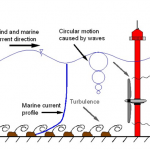
Launched in June 2013, the Reducing the Costs of Marine Renewables via Advanced Structural Materials, is a three year, £1.2M grant funded by EPSRC , SUPERGEN Marine Grand Challenge, split between the Universities of Southampton, Strathclyde (lead) and Newcastle. (Grant EP/K013319/1) Summary For marine renewable energy conversion to achieve a much needed step change in cost reduction, whilst proving ...
Census 2022: Transforming Small Area Socio-Economic Indicators through ‘Big Data’ 
Census 2022: Transforming Small Area Socio-Economic Indicators through ‘Big Data’ is a project funded by the ESRC Transformative Research 2012/2013. Investigators: Dr Ben Anderson, Dr Patrick James & Prof. ‘Bakr Bahaj Contact: b.anderson@southampton.ac.uk The possible demise of the decennial UK Census presents social, policy and commercial researchers with both a challenge and an opportunity: The challenge is to transform ‘census-taking’ ...
DEMAND: Dynamics of Energy, Mobility and Demand 
DEMAND: Dynamics of Energy, Mobility and Demand is one of 5 RCUK End User Energy Demand Research Centres and is sponsored by EPSRC/ESRC with support from partners EDF-Energy, Transport for London and the International Energy Agency. The Centre is led by the Universities of Lancaster & Leeds and besides Southampton also involves researchers from Aberdeen, Reading, Birmingham, UCL, ...
Energy for Development Network 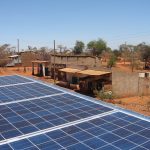
The Energy for Development Network aims to combine these three key components to develop appropriate, replicable models for energy systems that recognize the socio-economic and financial, as well as technical aspects of supplying energy.
Sustainable Thermal Energy Service Partnerships 
This research will study applicable energy conversion and end-use application technologies, analyse institutional arrangements, develop business and enterprise models which needs to be implemented to promote thermal energy services in rural areas developing countries The research will analyse the respective role of government and private partners to form Public-Private-Partnership (PPP) models for energy services like ...
The distribution and dynamics of UK citizens’ environmental attitudes, behaviours and actions 
The distribution and dynamics of UK citizens’ environmental attitudes, behaviours and actions is a project funded by the Economic and Social Research Council under the Secondary Data Analysis Initiative and runs from January 2013 to June 2014. The project uses Understanding Society, the new large scale UK longitudinal household panel to analyse the environmental attitudes, behaviours, and actions ...
The role of community-based initiatives in energy saving 
This ESRC-funded 4 year year study is assessing the impact of community greening groups on a roll out program insulation upgrades in privately owned housing. The project is led by Prof. Graham Smith, School of Social Sciences, University of Westminster.
Feasibility Study of the Impacts of a Proposed Tidal Array Installation in Alderney South Banks 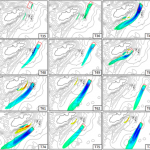
Project involves site-specific numerical modelling of hydrodynamic and sedimentary processes to assess the possible long-term impacts of a number of different tidal turbine array configurations.
Transforming Energy Demand through Digital Innovation – Intelligent Agents for Home Energy Management 
This project seeks to apply novel artificial intelligence approaches to develop intelligent agents that will enable domestic consumers to visualise, understand and manage their energy use. It is a three year EPSRC project (EP/I000143/1), which started in October 2010, within the ‘Transforming Energy Demand through Digital Innovation’ call. The project brings together expertise in artificial intelligence ...
Building Refurbishment for Reduced Emissions 
In the UK many buildings, whether residential, commercial or industrial, are still single glazed and possess no or poor thermal insulation . However, as the work of ECCD has revealed, care needs to be taken when adding thermal insulation to existing buildings without addressing solar shading and ventilation issues at the same time. Adding thermal ...
ECCD was commissioned by the Institute of Civil Engineers to generate a report on the potential of heat recovery from centralised electricity generation in the UK.
The Hydrodynamics of a Distensible Wave Energy Converter 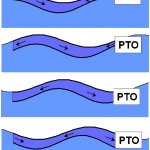
The aim of this research is to develop a better understanding of the hydrodynamics of the device, and formulate a comprehensive and validated numerical with which to make more reliable estimates of full scale performance. Experiments will be carried out at scales of 1:20 and 1:10, with tubes of diameters 0.25m and 0.50m, at which ...
The multi-mode response of a cylinder undergoing simultaneous vortex-induced and wake-induced vibrations 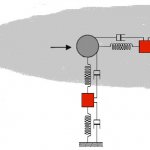
In this project we plan to build an experiment that will for the first time allow us systematically to study the response of a cylinder which is excited by these two processes simultaneously. To do this, the downstream cylinder has to be mounted on a compound elastic system that has two natural frequencies in each ...
Access To The Deep Water Wave Basin using Anaconda at the Danish Hydraulics Institute 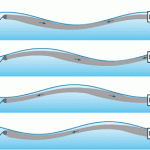
The Energy and Climate Change Division is involved in the investigation of Anaconda and different modifications of its original design within an EPSRC funded project. The emphasis lies in the development of a better understanding of the hydrodynamics of the device and validated numerical simulations.
Thin Film Development – Flexible Hydrogenated Amorphous Silicon Solar Cells 
Achieving low cost, non-toxic, high efficiency, high throughput solar cells is the ultimate challenge for the solar energy industry. Traditional glass laminate crystalline silicon solar cells offer relatively high efficiency (up to 20%) but are an expensive product. Research and development of low cost sputtered amorphous silicon solar cells on flexible substrates is being conducted ...
The UK has the best wind resource in Europe and this is now starting to be harnessed through both on-shore and off-shore multi-MW scale wind farms. Whilst performance figures for commercial wind farms are well known, no comparable data exists for the micro wind market. ECCD is part of the UK micro wind trial which is ...
HYLOW – Development of Hydropower Converters for Very Low Head Differences 
… is a research project which has the aim to develop novel hydropower converters for very low head differences or pressure differences … funded under the European Commission’s Framework 7 Programme … Background Hydropower is the oldest artificial power source known to man; it was already employed in antiquity; the Roman architect Vitruvius describes a water wheel ...
Photovoltaics in Residential Applications 
Residential grid connected PV systems are relatively simple to design with easy to predict annual yields. However, the headline economics of residential PV in the UK are at present unattractive. A typical small residential PV system (1 to 3 kWp) as shown in the top figure would cost in the year 2000 around £4,500 per ...
Photovoltaic Module Mismatch Studies 
An investigation of mismatch effects on a 24 string array at the University of Southampton has been undertaken. Building 2 has a vertical 7.2 kWp SW facing array, consisting of 96 BP275 mono-crystalline PV modules, configured as 24 strings, each consisting of 4 modules in series.
Tidal Stream Resource & Economic Assessment and Optimisation 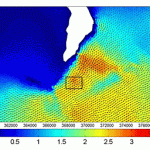
Assessments of the tidal stream energy resource have taken the form of desktop studies, produced using navigational data, for the purpose of providing government and industry with broad estimates of the economic potential for the development of tidal stream power.
Wave Energy Resource at Potential sites for the Pelamis 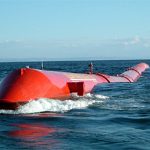
A collaborative project between the University of Southampton and Pelamis Wave Power Ltd (PWP) is currently aiming at providing a wave climatology package with a documented methodology. This package is intended to allow the detailed wave climate to be calculated for a designated area, given raw satellite or buoy data as input.
Performance Characteristics and Optimisation of Marine Current Energy Converter Arrays 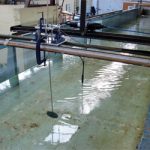
Understanding the effect devices have on the flow is critical in determining how one device may modify both the performance of and loading experienced by another device in the array. It is the aim of this work to identify and investigate the parameters which govern the wake structure and its recovery to the free-stream velocity ...
Solar PV Systems at Highfield Campus, Southampton 
The University of Southampton has three permanently grid connected PV systems on its Highfield Campus designed and serviced by the Sustainable Energy Research Group. The installed capacity of these three facilities is about 20 kWp: (a) George Thomas Building – 12.2 kWp atrium (b) Building 2 – 7.2 kWp vertical façade (c) Eustice Building – 0.4 kWp roof ...
EPSRC Ecoregion Research Networks 
The China-UK Ecoregion Research Networks brings together industry, academia and government for practical research, innovation and global interaction in the development of eco-cities and ecoregions worldwide.
Assessment of Urban Microgeneration Solutions 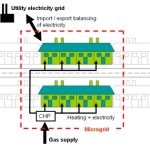
The group’s research is looking at existing housing developments from the 1970s, 1980s, 1990s and 2000s to determine the scope and potential impact of microgeneration technologies and energy efficiency measures on the residential scale.
Marine Current Energy Arrays & Alderney Tidal Race Study 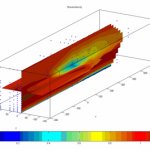
Understanding the effect devices have on the flow is critical in determining how one device may modify both the performance of and loading experienced by another device in the array. It is the aim of this work to identify and investigate the parameters which govern the wake structure and its recovery to the free-stream ...
Co-ordinated Action on Ocean Energy (CA-OE) 
The main deliverables from this Coordinated Action are the reports from the Five Workshops to be held :- (i) Modelling Ocean Energy System (ii) Component Technology and Power Take-off (iii) System Design, Construction, Reliability and Safety (iv) Performance Monitoring of Ocean Energy Systems (v) Environmental, Economics, Development Policy and Promotional Opportunities.
Exploring the value of transactional energy consumption data 
The Exploring the value of transactional energy consumption data project is part of the wider ESRC funded Administrative Data Research Centre for England (ADRC) and will enable information routinely collected by government departments and other agencies, such as tax, education, health and consumption data, to be shared with researchers.
Using Energy Metering Data to Support Census 2021: A Feasibility Study 
The possible demise of the decennial UK Census presents social, policy and commercial researchers with both a challenge and an opportunity. If we are no longer to be restricted to what can be asked in a Census, what kinds of social indicators might we want or be able to produce and when?
Hydrodynamics of Marine Current Turbines for Electrical Power Generation 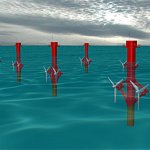
Marine current turbines can play an important part in achieving an increase in electricity generation from renewable resources, but the development of the required technology will demand significant research effort. This project will lead to a better understanding of the design implications of some of the features that distinguish marine current turbines from wind turbines, ...
Holographical Optical Elements (HOE) for high efficient illumination, Solar Control and Photovoltaic Power in Buildings 
The Sustainable Energy Research Group has been involved in an EU FP5 research project on High Efficiency HOEs investigating HOEs for building applications as well as testing their compliance as a building material. Within this project the work of the researchers in Southampton centred on HOEs as a solar shading solution. Bespoke thermal simulation models ...
PV Roof Tile Development – POWERTILE 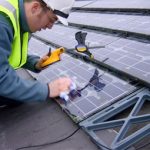
ECCD has developed a PV roof tile through Powertile Ltd which is now sold under license by Marley Eternit. A test roof at the University, which is shown in Figure 3, is used for prototype assessment and analysis of the thermal behaviour of different roof constructions.
Development of Reliable Electrical Connectors for PV Roofs 
The installation of modules in building facades and other structures has necessitated the use of push fit connectors to enable quick and easy inter-module dc electrical connection. An accelerated lifetime fretting rig has been developed to test presently available and PV prototype connectors as the dc interconnection between PV elements represents a potential weak link ...
Solar PV in Food Transport Refrigeration 
The Energy and Climate Change Division has led a programme to develop what is believed to be the world’s first solar powered refrigeration unit installed on a working articulated vehicle for Sainsbury’s Supermarkets Ltd.
SCOLAR – UK national programme of PV for Schools 
The Scolar Programme for Photovoltaics was initiated as a response to the Government’s Foresight Challenge to develop photovoltaic (PV) technology and to raise awareness of PV in schools and other educational establishments.
Bioleaching of Industrial Minerals 
Three year research programme to investigate the use of micro-organisms in a bioleaching process, as an alternative method to hot acid leaching. The project aimed to produce a high quality sand product using less hazardous chemicals, which would also result in a safer by-product for disposal.
Pollution Control using Magnetotactic Bacteria 
The Energy and Climate Change Division has been involved in research utilising bacteria for industrial contaminant control. The work has concentrated on bacteria with magnetic properties which, for example, can be used to immobilize heavy metals from a surrounding solution. These magnetic properties permit removal of bacteria and contaminants from the solution by using a superconducting, permanent ...
Carbon Footprinting and Modelling: The Key to the Low Carbon City
Velocity assessment of tidal sites around the Isle of Wight
CHP networks – ICE Commissioned work
Tidal-Current Energy Device Development and Evaluation Protocol
Eco Island targets
(MicroGen): Integrating Micro-Generation into Energy Networks and Buildings
PV in Marine Propulsion
SUE Travel Grant – Infrastructure & Environment Programme



